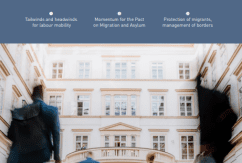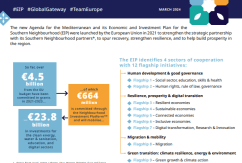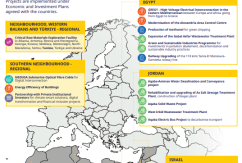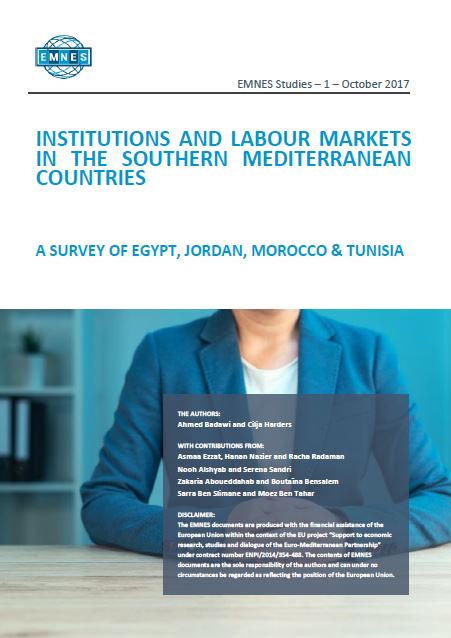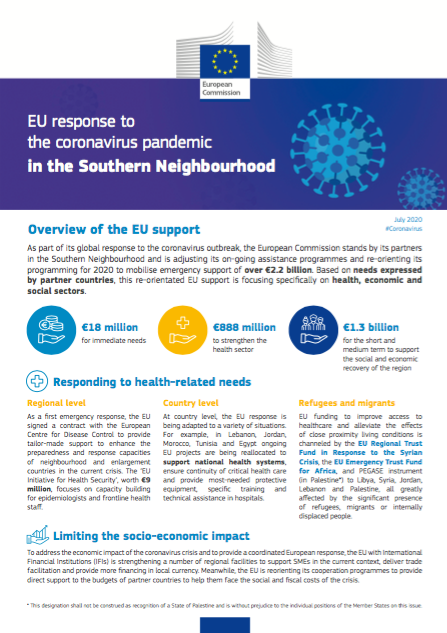FEMISE MED BRIEF n°7 : The Effects of Syrian Refugees on the Labor Markets of Host Countries
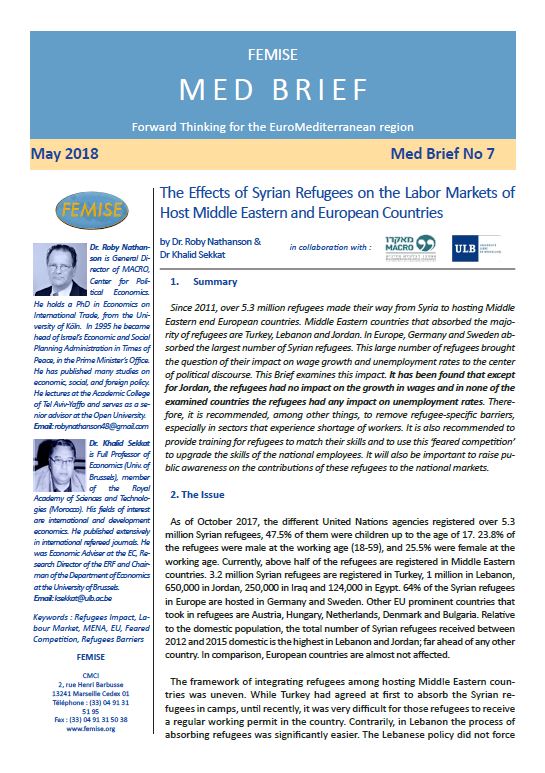

Since 2011, over 5.3 million refugees made their way from Syria to hosting Middle Eastern end European countries. Middle Eastern countries that absorbed the majority of refugees are Turkey, Lebanon and Jordan. In Europe, Germany and Sweden absorbed the largest number of Syrian refugees. This large number of refugees brought the question of their impact on wage growth and unemployment rates to the center of political discourse. This Brief examines this impact.
It has been found that except for Jordan, the refugees had no impact on the growth in wages and in none of the examined countries the refugees had any impact on unemployment rates. Therefore, it is recommended, among other things, to remove refugee-specific barriers, especially in sectors that experience shortage of workers. It is also recommended to provide training for refugees to match their skills and to use this ‘feared competition’ to upgrade the skills of the national employees. It will also be important to raise public awareness on the contributions of these refugees to the national markets.
The FEMISE Policy Brief series MED BRIEF aspires to provide Forward Thinking for the EuroMediterranean region. The briefs contain succinct, policy-oriented analysis of relevant EuroMed issues, presenting the views of FEMISE researchers and collaborators to policy-makers.








